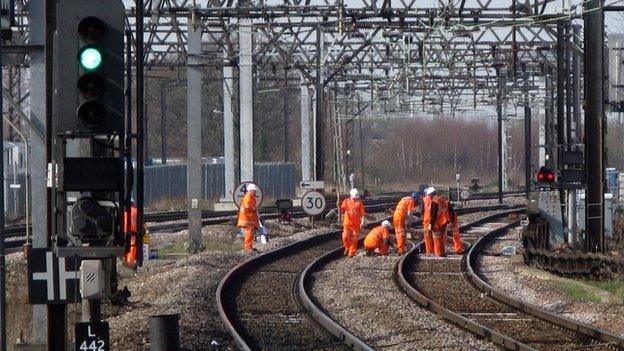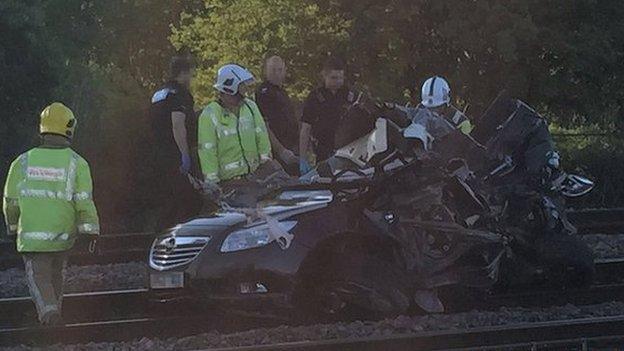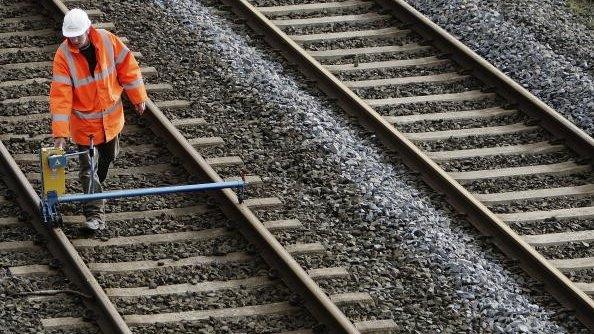Deaths on railways reach new high
- Published

A record number of people died on Britain's railways last year, according to safety figures.
Among the 332 deaths were 293 suspected suicides and 22 fatal injuries caused by trespassing during 2014/15 - up from 300 in 2013/14 - the previous record.
It is highest number recorded in 11 years of records.
However, the Rail Safety and Standards Board recorded an eighth consecutive year without a fatal accident involving passengers.
The total of deaths included 10 people - two of them drivers - who died in accidents at level crossings.
Four people died at stations, two workers were fatally injured in road traffic accidents and another in an incident at a train depot.
'Not complacent'
George Bearfield, director of system safety at the Rail Safety and Standards Board, said the rail industry took the issue of suicide "very seriously".
He said station managers and staff worked with charity Samaritans in prevention and support work after deaths.
The annual safety figures also revealed a 6% rise in the number of passengers and public assaults for the first time since 2008/9.
There was also a 4% increase in the number of journeys made over the past year, which reached 1.66 billion.
The last fatality involving passengers happened in February 2007, when a passenger train derailed in Cumbria, killing Margaret Masson, 84, from Glasgow, and injuring 86 people.
Mr Bearfield said: "No-one in the rail industry is complacent about safety and there remain areas of concern that we will be working with the industry to address.
"However, rail remains one of the safest forms of transport."
- Published21 July 2015

- Published2 July 2014
